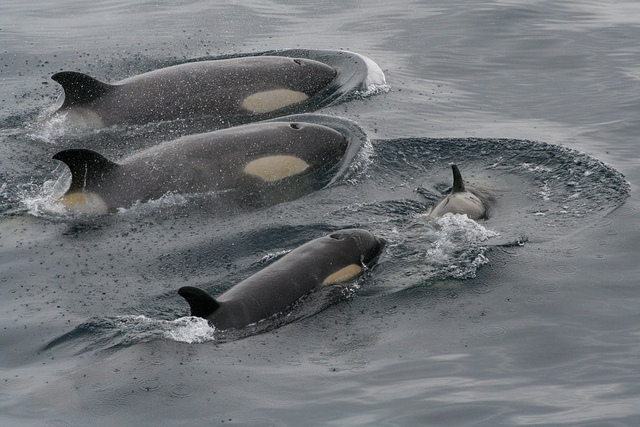|
I cannot tell what you are thinking. I can predict, but I do not know what is going on behind your eyes as you read this post. I can’t figure that out any more then when I look into the eyes of my Siberian husky. For people unfamiliar with huskies, they are a breed that is quite independent. If a golden retriever lives to serve, then a husky has its own list of priorities and hopefully can fit you in on Tuesday. While they can be loving and affectionate, they are their own animal. Kodiak is sometimes more roommate than pet. Still when he runs over with his tail waiving, an excited look in his eyes, and unloads a series of kisses after I come home from grad school for a few days, it is very hard not to check my formal training at the door. In my undergraduate classes I was taught that we are not to assume animals are capable of emotion. Nor are we to attribute behavior to emotion. To consider emotion in an animal was to anthropomorphize it. That is, it was to project human attributes on non-human entities. Disney does this all the time for story telling purposes. There are epistemological reasons for this. Truth be told it is a rational approach until we begin to consider evolution. Evolution as a mechanism is inherently conservative. Not conservative in that it is for supply side economics, but conservative in that the evolutionary process only builds upon what is already there. My offspring will not suddenly have compound eyes identical in structure to that of a fly unless the genetic code for that trait is either already there (which I would highly doubt) or generated through mutation. So the question is: are human emotions unique to humans or are they something we inherited. It is my opinion that evidence is with the later. Chimpanzees demonstrate complex behaviors including: social-political hierarchies (hierarchies are not merely based on size but in group politics plays a role), use of tools, and high level problem solving in comparison to other species. They are our closest living relatives and for all intents and purposes demonstrate cognitive abilities on par with young children. Gorillas have been taught sign language. Primates demonstrate behaviors that appear to clearly be linked to emotional reactions. Fear is probably the easiest to recognize. Still you might suggest that maybe our emotional intelligence is simply an attribute unique to primates. For those who caught the painfully depressing documentaries "Blackfish" and "Luna", the documentarians did a decent job explaining whale social groups. I watched sections where they explained whale behavior with a critical eye. I was a marine biologist for two years and had the awesome opportunity to study whales. (Side note: please if you get the chance donate to the Blue Ocean Society for Marine Conservation) When discussing the plight of separating wild orcas from their families they pointed out something interesting that I went back and verified. The part of the Orca brain that handles social and emotional intelligence is potentially more developed in orcas than humans. In fact their brains demonstrate the kind of complexity we typically see in intelligent primates.
So what does this mean? It means first off that the question of emotions at least in mammals, appears to be settled. We see behaviors and the kind of brain development that would indicate emotions. We even appear to have documented cases of dolphins committing suicide. So the case for human or even primate exceptionalism in this area appears to be bunk. So how emotions are considered in animal behavior going forward should take into consideration how developed the brain in the animal in question is. This also has policy implications. Dolphins are officially considered non-human persons under Indian law. In fact the legal personhood movement has gained steam. As it continues to gain steam, personhood will have economic impacts. If I kill a dolphin with a fishing net I also net a manslaughter charge, it will create a need for innovation in fishing technologies and fisherman behavior. Without fail there will be people who decry such pressures on economic forces. In fact if history is any indicator, we could see the Heartland Institute, American Enterprise Institute, and Cato all paid to coauthor a document claiming that dolphins are incapable of feeling emotion and like being killed with fishing nets. The disgusting level of corruption in the think tank world aside, we have to consider the moral implications of scientific discoveries. If orcas, chimpanzees, and Kodiak are all rational actors capable of emotions, have their own wants and needs, and forge deep social connections than maybe the animal rights movement has a point to make.
1 Comment
11/28/2015 03:28:52 pm
I was just thinking about this exact topic today especially considering the feeling of regret.
Reply
Your comment will be posted after it is approved.
Leave a Reply. |
AuthorChristopher Round is a doctoral candidate at George Mason University studying information technology and climate policy. Archives
July 2019
Categories |




 RSS Feed
RSS Feed
